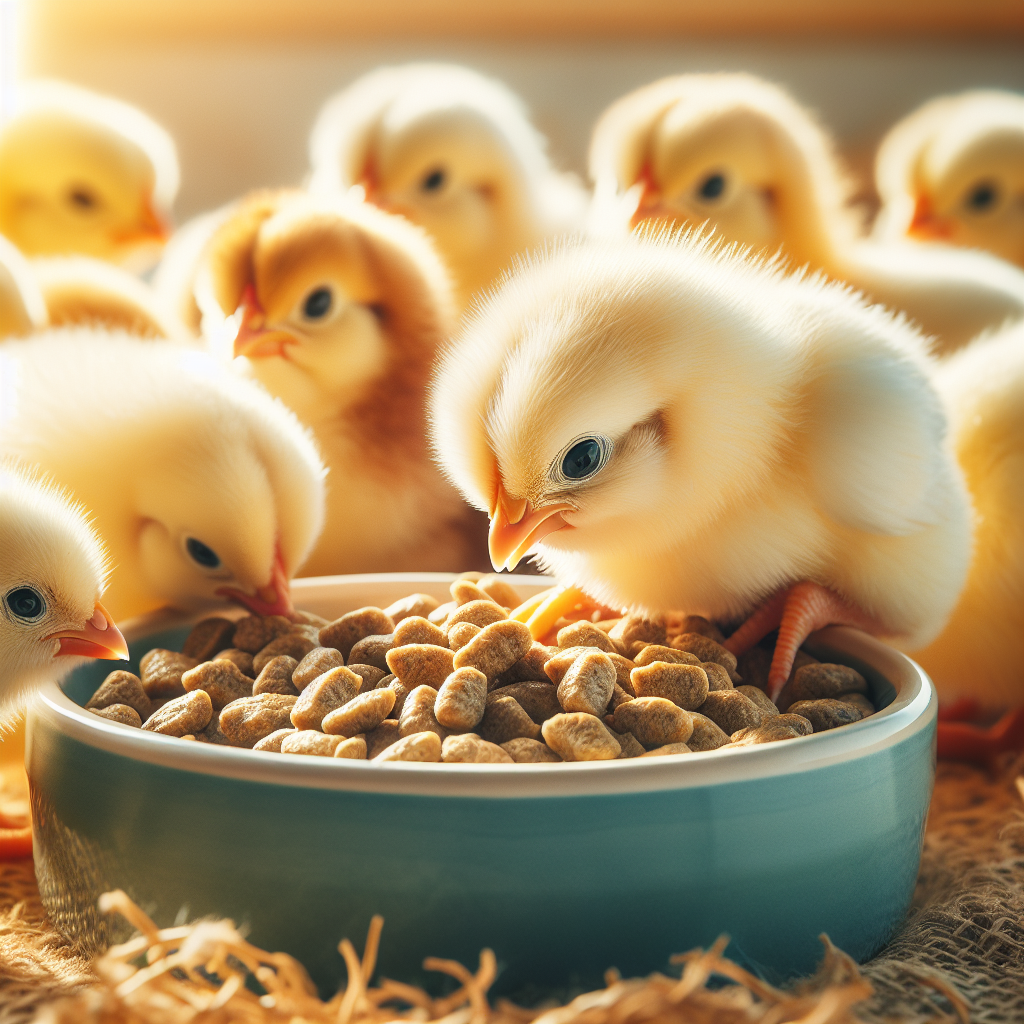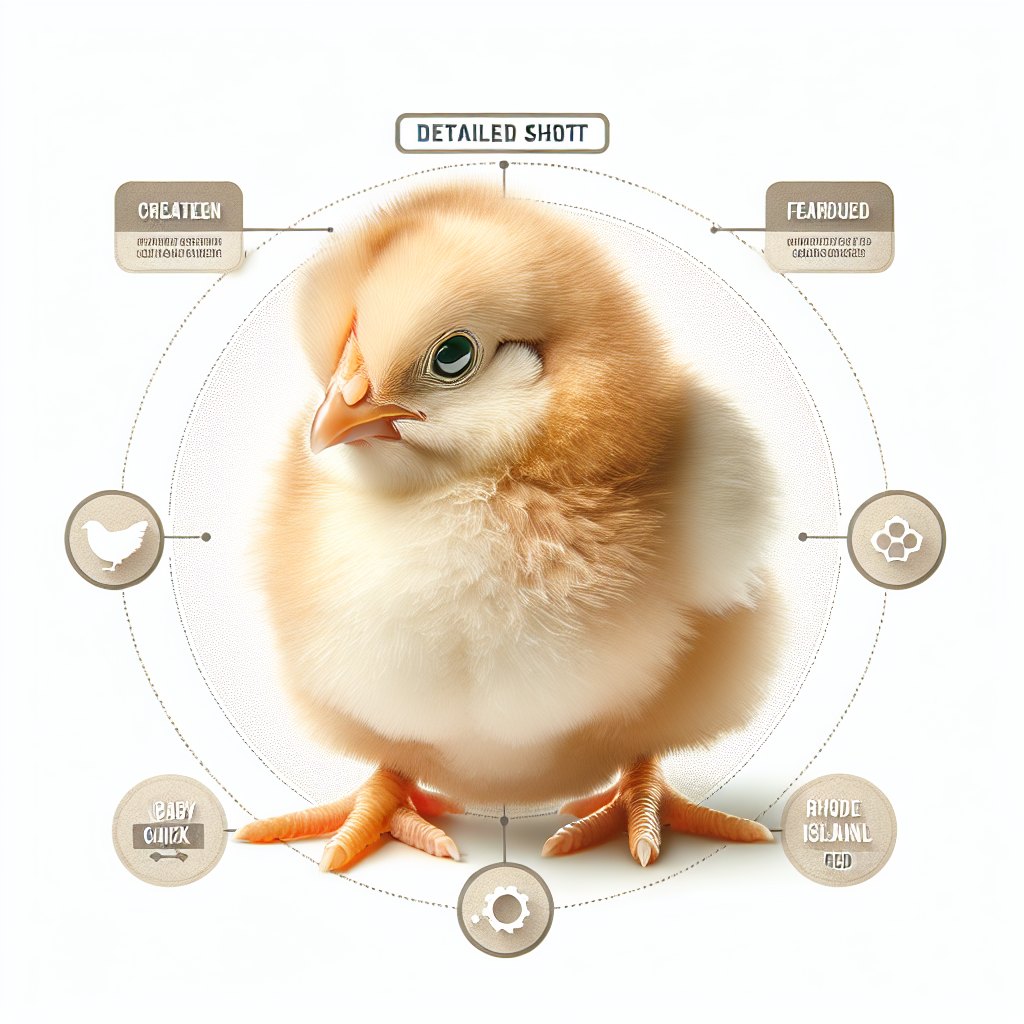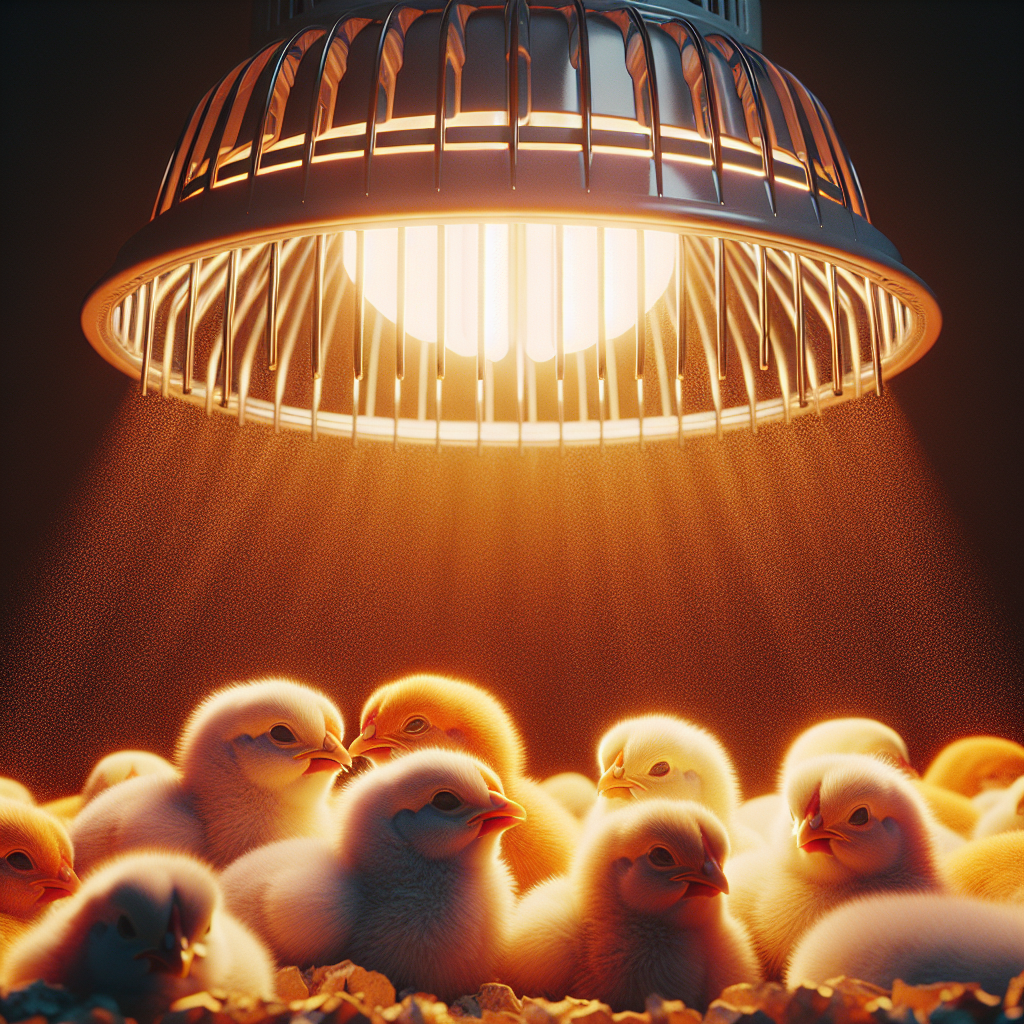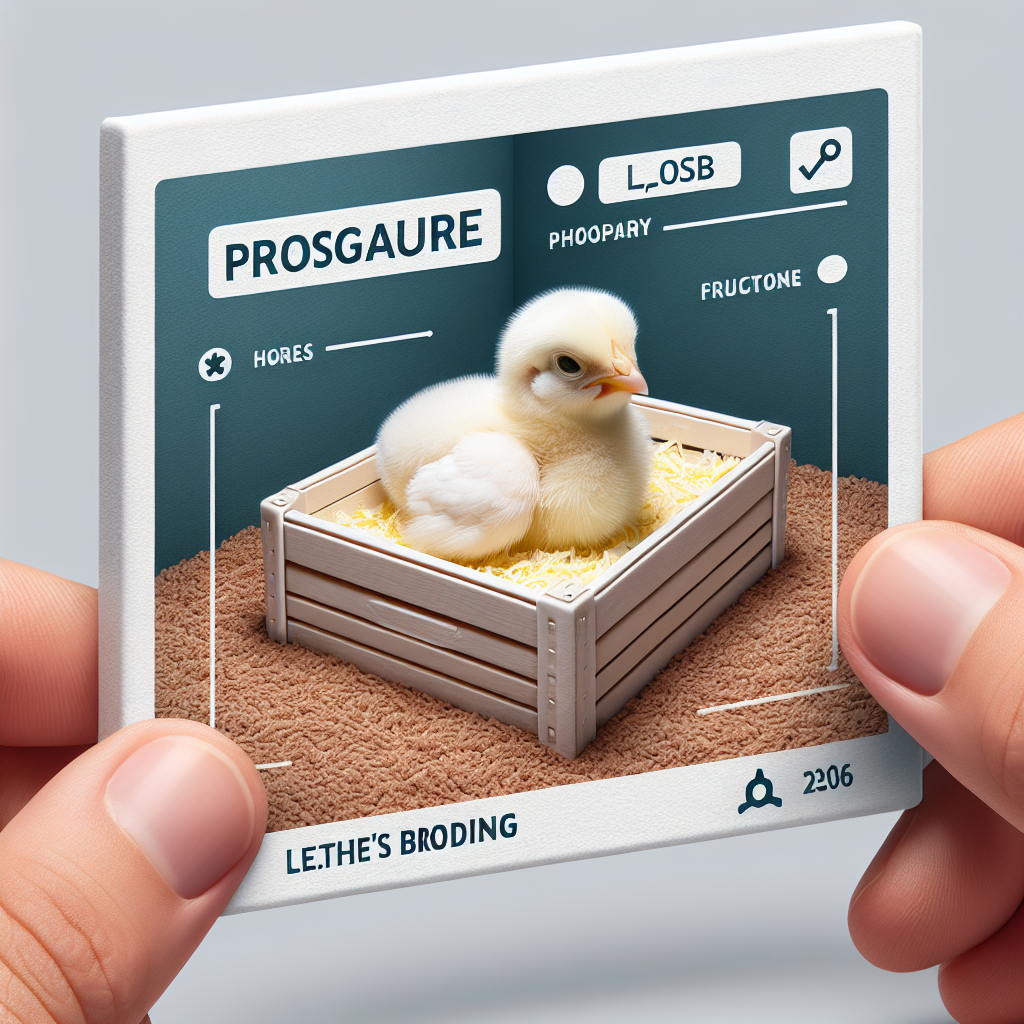Congratulations on becoming a proud owner of baby chickens! Now that you have these adorable little creatures in your care, you’re probably wondering how to ensure their optimal growth and development. From providing the right nutrition to creating a comfortable living environment, this article will guide you through the essential steps to ensure that your baby chickens grow up healthy and strong. So, let’s embark on this exciting journey together and discover the key factors that contribute to the proper growth and development of these delightful little beings.
Enclosure and Space
Providing a suitable enclosure
When raising baby chickens, it is essential to provide them with a suitable enclosure that meets their needs. A brooder box or a dedicated chicken coop can serve as an ideal enclosure for young chicks. The enclosure should be secure, protecting them from predators and preventing them from escaping. It is also important to ensure proper ventilation in the enclosure to prevent overheating and maintain fresh air circulation.
Ensuring ample space for growth and movement
While providing a suitable enclosure, it is crucial to consider the space requirements for the growing chicks. Overcrowding can lead to stress and can hinder their growth and development. It is recommended to provide a minimum of 2 square feet of space per chick inside the enclosure. As the chicks grow, it is essential to provide them with enough space to move around comfortably, exercise their wings, and engage in natural behaviors.
Temperature and Heating
Maintaining optimal temperature
Temperature plays a significant role in the healthy growth of baby chickens. Chicks require a specific temperature range to thrive, and maintaining optimal temperature is crucial. For the first week, the brooder temperature should be around 95 degrees Fahrenheit. Gradually decrease the temperature by 5 degrees each week until reaching the ambient temperature. It is essential to monitor the chicks’ behavior and adjust the temperature accordingly, ensuring they are neither too hot nor too cold.
Using heat lamps or brooder heaters
To provide the necessary warmth, heat lamps or brooder heaters can be used in the enclosure. Heat lamps should be placed securely and at a safe distance to avoid any accidents or fires. It is recommended to position the heat source on one side of the enclosure, creating a temperature gradient and allowing the chicks to choose their preferred temperature zone. By providing a source of heat, chicks can regulate their body temperature and have a comfortable environment for growth.
Proper Feeding and Watering
Choosing a balanced chick starter feed
Feeding baby chickens a balanced chick starter feed is vital for their growth and development. Chick starter feed is specifically formulated to provide the necessary nutrients for young chicks. It typically contains a balanced blend of proteins, vitamins, minerals, and amino acids, promoting healthy growth. Look for a feed specifically labeled for young chicks and ensure it contains essential nutrients such as calcium for bone development. Remember to always read the label and follow the recommended feeding guidelines.
Offering fresh water at all times
Water is essential for the health and well-being of baby chickens. Ensure a clean and easily accessible water source is available to the chicks at all times. Use a shallow waterer specifically designed for chicks to prevent drowning. Check the waterer regularly to ensure it is clean and free from debris. Providing fresh water will keep the chicks hydrated, aid in digestion, and support proper growth.
Lighting and Photoperiod
Providing appropriate lighting
Lighting is an important factor in the growth of baby chickens. Providing appropriate lighting mimics natural daylight conditions and helps regulate their growth and development. Use a light source that emits a warm glow, such as a red or infrared bulb, as it is less stressful for the chicks. Initially, provide 24 hours of light for the first few days, gradually reducing it to 16 hours of light and 8 hours of darkness as the chicks grow. A consistent lighting schedule helps establish a healthy routine for the chicks.
Controlling the photoperiod for proper growth
Controlling the photoperiod, or the period of light and darkness, is crucial for the proper growth of baby chickens. Adequate exposure to light stimulates their appetite, promotes bone development, and aids in feather growth. Ensure the chicks have a balanced photoperiod, allowing for sufficient darkness and uninterrupted sleep. Maintaining a consistent lighting schedule will contribute to their overall health and development.
Hygiene and Cleanliness
Maintaining a clean environment
A clean environment is essential for the health and well-being of baby chickens. Regularly sanitize the enclosure to minimize the risk of diseases and parasites. Remove any accumulated droppings, feathers, or leftover feed to prevent bacterial growth. Additionally, keep the surrounding areas clean and free from debris that could attract pests or predators. A clean environment provides a safe and healthy space for the chicks to grow and develop.
Regularly cleaning bedding and removing droppings
Bedding plays a crucial role in maintaining cleanliness in the chick enclosure. Use pine shavings, straw, or other suitable bedding materials that are absorbent, easy to clean, and provide cushioning for the chicks. Regularly remove soiled bedding and replace it with fresh, clean bedding. Also, remove droppings from the enclosure promptly to maintain optimal hygiene. Clean and dry bedding helps prevent bacterial growth and keeps the chicks comfortable and healthy.
Supplemental Calcium and Grit
Providing calcium sources for bone development
Calcium is essential for the development of strong bones and proper muscle function in baby chickens. To ensure the chicks receive sufficient calcium, provide supplemental sources such as crushed eggshells or oyster shell grit. Mix the crushed eggshells or oyster shell grit into their feed, allowing them to consume it naturally. Providing the necessary calcium supports their skeletal development, preventing common issues like weak bones or egg-laying problems in the future.
Offering grit for digestion
Grit aids in the digestion process of baby chickens by breaking down food particles in the gizzard. Grit acts as a grinding agent, helping them extract maximum nutrients from their feed. Provide chick-sized grit, such as finely crushed granite or sand, in a separate container within their enclosure. It is essential to offer grit from an early age to support the proper development of their digestive system.
Vaccinations and Disease Prevention
Consulting a veterinarian for proper vaccinations
Vaccinations play a crucial role in preventing diseases and promoting the overall health of baby chickens. Consult a veterinarian experienced in poultry health to determine the appropriate vaccination schedule for your chicks. Common vaccinations may include protection against Marek’s disease, Newcastle disease, or infectious bronchitis. Administering vaccinations at the appropriate time helps strengthen the chicks’ immune systems, reducing their susceptibility to potentially harmful diseases.
Implementing biosecurity measures
Implementing biosecurity measures is essential to prevent the introduction and spread of diseases among baby chickens. Limit interactions between your chicks and other poultry or wildlife to minimize disease transmission. Practice good hygiene, including washing hands thoroughly before and after handling chicks. Keep the enclosure and surrounding areas clean, controlling pests, and regularly disinfecting equipment. By following biosecurity measures, you can ensure a healthier environment for your baby chickens.
Socialization and Enrichment
Allowing social interaction with other chicks
Baby chickens are naturally social creatures. Allowing them to interact with other chicks promotes socialization and provides mental stimulation. When raising multiple chicks, ensure they have enough space to comfortably interact and establish a pecking order. Introducing chicks of similar age and size fosters a healthy social environment, reducing stress and promoting overall well-being. However, closely monitor their interactions to prevent aggression or bullying.
Providing stimulating activities and toys
To keep your baby chickens mentally stimulated and engaged, provide them with enriching activities and toys. Scatter small treats or food puzzles around the enclosure, encouraging them to forage and explore. Hang a mirror or provide toys that are safe and suitable for chickens, such as hanging ropes or pecking balls. These activities keep the chicks entertained, alleviate boredom, and contribute to their overall mental and physical development.
Monitoring Growth and Development
Regularly weighing the chicks
Monitoring the growth of baby chickens is essential for ensuring proper development. Weigh the chicks regularly using a scale designed for small animals. Keep a record of their weights, enabling you to track their growth rate over time. Consistent weight gain indicates healthy growth, while a sudden plateau or weight loss might signify an underlying issue. Regular monitoring allows you to identify any potential problems and take appropriate actions to support their development.
Observing physical milestones
In addition to weight monitoring, observing physical milestones is another way to assess the growth and development of baby chickens. Physical milestones may include the development of feathers, increased size and coordination, or the ability to perch. Compare the chicks’ progress to average milestones for their age, provided by reputable sources or experienced poultry breeders. Any delays or abnormalities should be assessed and addressed promptly to ensure the chicks’ healthy growth.
Identifying and Addressing Issues
Recognizing signs of illness or abnormal development
It is crucial to be able to recognize signs of illness or abnormal development in baby chickens. Common signs of illness may include lethargy, lack of appetite, coughing, sneezing, diarrhea, or abnormal feather growth. Abnormal development may present as growth deformities, difficulty walking, or unusual behaviors. Regularly observe the chicks and promptly address any concerning signs or behaviors that deviate from normal patterns.
Seeking veterinary assistance if needed
If you notice any concerning signs or conditions in your baby chickens, it is important to seek veterinary assistance as soon as possible. A poultry veterinarian can provide expert guidance, diagnose any health issues, and recommend appropriate treatments. Early intervention and professional advice contribute to the well-being and growth of the chicks, ensuring they have the best chance for a healthy and productive life.
By following these comprehensive guidelines on enclosure and space, temperature and heating, proper feeding and watering, lighting and photoperiod, hygiene and cleanliness, supplemental calcium and grit, vaccinations and disease prevention, socialization and enrichment, monitoring growth and development, and identifying and addressing issues, you can ensure proper growth rate and development in baby chickens. Providing the optimal conditions for their well-being will result in healthy and vibrant birds that will bring joy to any flock.




